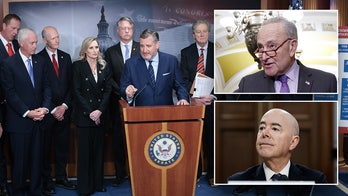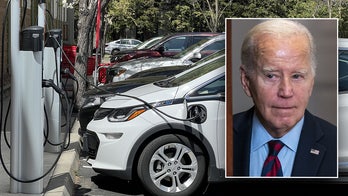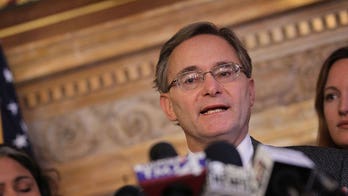Power Play 9/11/12
The long shadows of 9/11, Ryan rides into rough week in Congress and enthusiasm gap looms large for Obama.
“This is going to be a close election, what I need to make sure everybody understands is registration and turnout is critical.”
-- President Obama in an interview with WSOL-FM, an R&B station in Jacksonville, Fla.
President Obama got a bounce from the convention, but not one that seems likely to translate into victory on Election Day.
That’s the verdict of a new poll from the Washington Post and ABC News. The survey shows that while the president did indeed get a bounce among registered voters – swinging from a 1-point deficit to a 6-point lead over Republican nominee Mitt Romney. But among respondents who said they were likely to vote in the election: statistical bupkis.
In the race for likely voters, Obama now holds a 1-point lead over Romney. It’s the first time the poll has examined likely voters, so Obama may be better off with them too, but it’s no new trajectory for the race. With 56 days to go and the first nip of autumn in the air, this sucker is all tied up.
- EXCLUSIVE: Parents of SEAL Team Six member say unit endangered by Obama administration statements
- Obama calls Romney ‘new’ to foreign policy, recalling ’08 criticism
- Obama, Romney campaigns suspend negative ads on 9/11 anniversary
- Sen. Paul vows to press vote on Pakistan aid cutoff after jailed doc speaks out
- Chicago Public Schools offer 16-percent raise to teachers seeking 35-percent hike
In most of their prime-time convention moments last week, the Obama Democrats offered a plea for patience to the moderate voters who voted for Obama last time around.
[pullquote]
Former President Bill Clinton, First lady Michelle Obama and the president himself offered a congruent message of healing the divided and disappointed nation. Save Vice President Joe Biden’s jeremiad, the prime-time line up was about sounding practical and moderate.
The rest of the convention, though, was far from that. Democrats indulged their base on a host of prickly issues for the party: abortion, same-sex marriage, Israel, atheism and government worker unions.
Speeches by Sandra Fluke, a Georgetown University law student most famous for her crusade for subsidized contraception, and former Michigan Gov. Jennifer Granholm, now a host on Al Gore’s Current network, were pure red meat for the Democratic base.
And the debacle over striking God and Jerusalem from the platform before reinserting over staunch opposition was clearly a botched effort to mollify some of the noisier elements of the party’s activist core.
Republican nominee Mitt Romney, who is more moderate than the base of his own party, had a far easier time keeping the lid on such subjects. The red team was long forecast to have a factious convention, but except for some outbursts from the supporters of Rep. Ron Paul, had a show of moderation and unity.
If you want to know why the difference, look no further than today’s new Post/ABC poll.
In the survey, 17 percent of those who said they were registered voters said they were less than certain to vote, 10 percent of whom said the chances of them voting were 50 percent or less.
One bias that’s built into every poll is self-flattery, so we can assume that anyone who’s willing to tell a stranger on the phone this week that they’re unlikely to exercise their privilege as an American on Nov. 6 is serious about sitting out the pageant of democracy.
And who is the preferred candidate of the moderate to mostly apathetic? President Obama, by a long shot.
The year-long strategy from the president’s team has been to force a base-versus-base election in which the president’s power of incumbency, superior organization and disciplined message did for Obama what a similar scenario did for George W. Bush in 2004.
While the blistering character attacks on Romney combined with careful cultivation of various Democratic blocs –immigration activists, same-sex marriage proponents, pro-choice crusaders, government workers – have helped the president to solid support within his own party. And yet these same folks appear to be neither fired up nor ready to go.
A bounce among unlikely voters, especially if those unlikely voters live in bright-blue Democratic states like California and New York, may make a good talking point, but doesn’t change the state of the race.
Republicans generally turn out at a higher rate than Democrats and need less coaxing to do so. That’s how a country with a seven-decade Democratic popular majority so often elects Republican presidents and even occasional Republican majorities in Congress.
But this time, Republican voters are even more determined. While the president keeps telling his party that this is a monumental election that will determine the course of the country for a generation, the GOP base needs no reminding.
Pundits asked Monday whether the fact that Romney reaffirmed his support for some patient-rights provisions of Obama’s 2010 health law would cost him with the Republican base. Nope. So strenuous and unified is the opposition to Obama on the right that as long as Romney repeats the “repeal and replace” mantra, he can be assured their support.
After many months of rancorous primary fights, Republicans swiftly swallowed their misgivings about moderate Romney. While some on the right readily bemoan his campaign operation and failure to hit Obama even harder, Republicans seemed very willing to accept the bargain that Romney offered: electability in exchange for moderation.
The Post/ABC poll shows Obama’s central challenge for the next eight weeks – get his people marching again. The question is whether his ground game can do the work or if the president himself will need to spend more time firing up his people, an always risky proposition when the real prize in this election are the votes of the moderate suburban moms put off by partisan excess.
And Now, A Word From Charles
“The teachers average $76,000 a year in the salary. That is the highest of any big city in the country. The average person who pays taxes in Chicago, their average salary is $47,000. Teachers are making 50 percent more than those supporting them, on average.
They have been offered a 16 percent hike in wages at a time of high unemployment, desperation. And they turn it down. Why? They don't want tampering with the health benefits, and they don't want any system of the teacher evaluation so you can get some idea of who is not a good teacher.”
-- Charles Krauthammer on “Special Report with Bret Baier.”
In Memoriam
“Jack, pick up sweetie, can you hear me? Okay. I just want to tell you, there's a little problem with the plane. I'm fine. I'm totally fine. I just want to tell you how much I love you.”
-- A voice message for her husband left by Lauren Grandcolas, one of the passengers aboard the doomed Flight 93 of United Airlines bound from Newark, N.J. to San Francisco on the morning of Sept. 11, 2001.
Chris Stirewalt is digital politics editor for Fox News, and his POWER PLAY column appears Monday-Friday on FoxNews.com. Catch Chris Live online daily at 11:30 am ET at live.foxnews.com.





